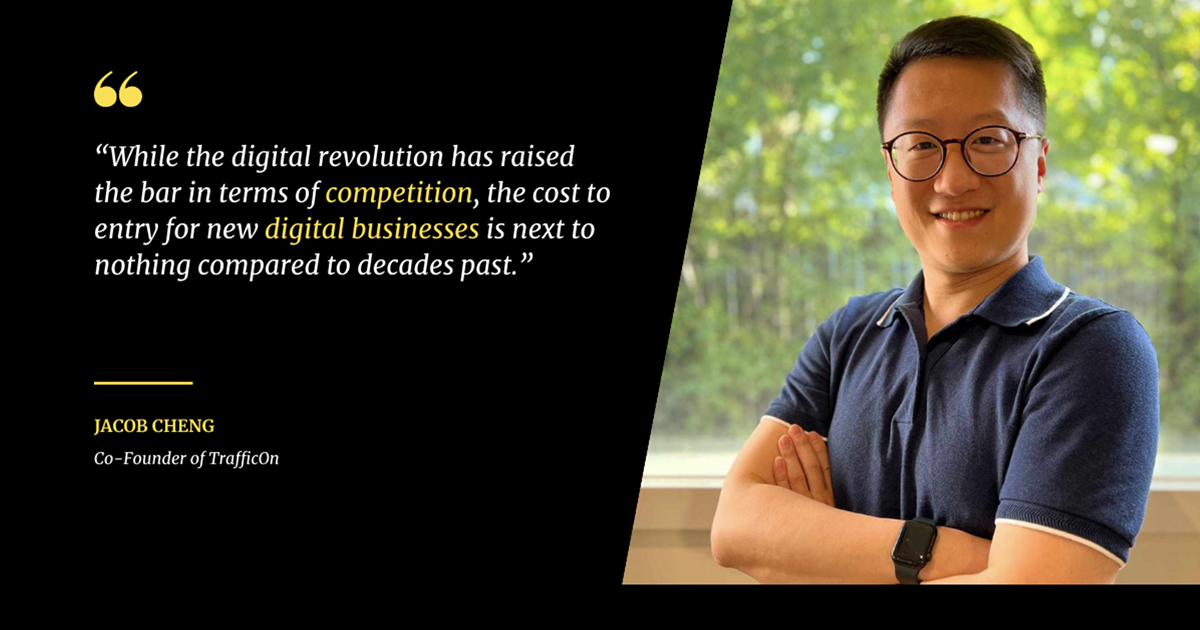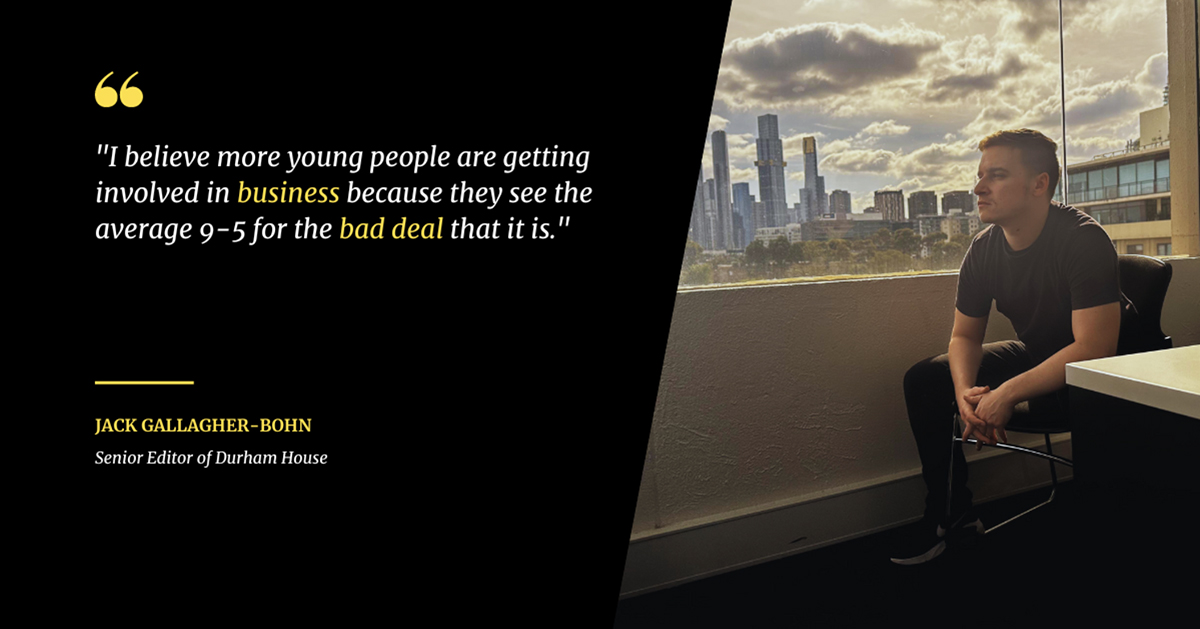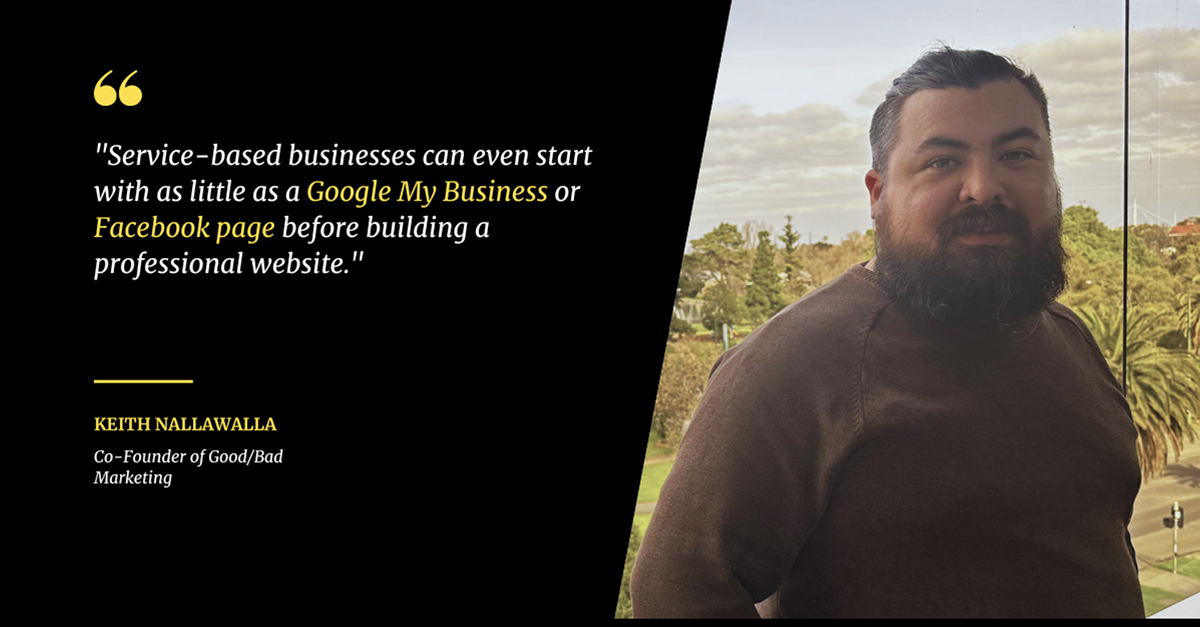
Journalist SAMUEL SHEPHERD spoke to some of Melbourne’s digital entrepreneurs to understand how post-lockdown Australia has seen an unexpected rise in small businesses.
THE pandemic left many economists and business specialists completely unsure of what the future held for the Australian business landscape.

However, the projection we heard echoed most amongst the crowds was that the idea of Australian small businesses would take a hit that it wouldn’t recover from for quite some time.
While small businesses were disproportionately affected by the pandemic, due to the limiting of access to businesses such as restaurants and bars, Australia’s small business conditions are beginning to improve faster than initially thought.
According to CPA Australia, 2022 was the strongest year for Australian small businesses since 2017, and beyond that, last year saw a 34 per cent increase in the number of small businesses registered in Australia when compared to 2019.
One might assume that this is just a trend for large-scale economic shakeups, but this is by no means the case. Even looking at the Global Financial Crisis of the late-2000s shows how wide-reaching issues associated with economic collapse can be, with the American unemployment rate not recovering until 2016, eight years later.
So, who’s starting these businesses?
It will likely come as no surprise that the demographic of new entrepreneurs skews younger and more tech-savvy than before. In the 2020s alone, close to half of all new business starters are under the age of 35. We’re also seeing a larger number of businesses started by women and those born overseas than in previous years, which once again, has driven up the small business market considerably.

Jacob Cheng, China-born co-owner and founder of the digital marketing agency TrafficOn, said: “While the digital revolution has raised the bar in terms of competition, the cost of entry for new digital businesses is next to nothing compared to decades past.
“This has been a mixed blessing for the digital marketing field, as it has meant that there is a lot more demand for our services, but it can take longer for a salesperson to work out if the person they are talking to is representing a business that will still exist in a year’s time.”
Looking at current trends for small businesses, we can see a few reasons that younger generations are starting to have an outweighed presence in the small-business market. After all, one of the most significant growth industries in Australia is technology. Gen Z was born into the tech boom of the 2000s and developed their understanding of the world alongside the rapid rise of platforms such as Facebook, Twitter, Instagram, and even more niche-specific sites such as Amino. This more innate familiarity with digital spaces and the intricacies of online culture has led more and more people to have the skills needed to start online businesses. However, while this explains the “how”, it doesn’t quite give the “why”.
What’s driving more workers toward self-employment?

On the topic of why younger people are starting small businesses and side hustles, Jack Gallagher-Bohn, 21, of the South Melbourne-based digital publication Durham House, said: “I believe more young people are getting involved in business because they see the average 9-5 for the bad deal that it is.
“After all, getting told what to do all day by an angry manager is not an attractive prospect. Not to mention all the blood, sweat and tears you may sacrifice will go entirely unnoticed in 99 per cent of businesses simply due to the fact that it’s not your business, you’re working for someone else that most definitely views you as replaceable. I believe this is a massive reason for why more young people in particular are starting their own businesses, they want respect and they deserve it.”
This is a sentiment that is shared by a growing number of people, young and old, who feel that the career pathways and traditional employment structures promised by previous generations haven’t held up their end of the bargain. It’s no surprise that the “Be Your Own Boss” movement and the r/Antiwork community have grown at the same time, despite seeming like polar opposite ideologies.
With all this in mind, there is one factor that has shifted the needle that does need to be considered.
The rise of digital literacy
We are in an age of digital understanding and ubiquity the likes of which have never been seen, and that has inevitably shown in the way that we do business.
In the time during and after COVID-19, 72 per cent of businesses have looked to digitalise parts of their services, and with new routes to getting your MBA online, and developing your business skills through online platforms, younger business hopefuls have every reason to dedicate themselves to online platforms over traditional physical locations.

Keith Nallawalla, co-owner of Good/Bad Marketing, said: “The costs associated with setting up a brick and mortar store are becoming increasingly prohibitive for new businesses, which also have the drawbacks of hourly wages and various bills.
“Meanwhile, an online business can start off in their house with few overheads outside of stock and costs associated with their chosen web platform.
“Many eCommerce businesses can start out using platforms like eBay, Amazon, and Etsy before being able to fund the creation of their own platforms. Service-based businesses can even start with as little as a Google My Business or Facebook page before building a professional website.”
The fact is that an increase in online shopping stemming from the COVID-19 lockdowns have led to more opportunities for those who have the skills and expertise to take full advantage of digital platforms. Even more established businesses are beginning to take advantage of these trends, with digital marketing seeing a significant increase in demand from new businesses looking to find their place in the online landscape.
So, what should we take from all of this?
At the end of the day, all we can say is that the business landscape is changing. More people are stepping out on their own and starting businesses, and this is creating more competition for those that have been in the business world for many years. Whether this is a boom or a bubble is yet to be seen, but the ideologies and trends that are leading these changes cannot be ignored.
Samuel Shepherd is a writer, content marketing specialist and head editor for the Melbourne-based digital agency Premium Links.
Who can be trusted?
In a world of spin and confusion, there’s never been a more important time to support independent journalism in Canberra.
If you trust our work online and want to enforce the power of independent voices, I invite you to make a small contribution.
Every dollar of support is invested back into our journalism to help keep citynews.com.au strong and free.
Thank you,
Ian Meikle, editor




Leave a Reply